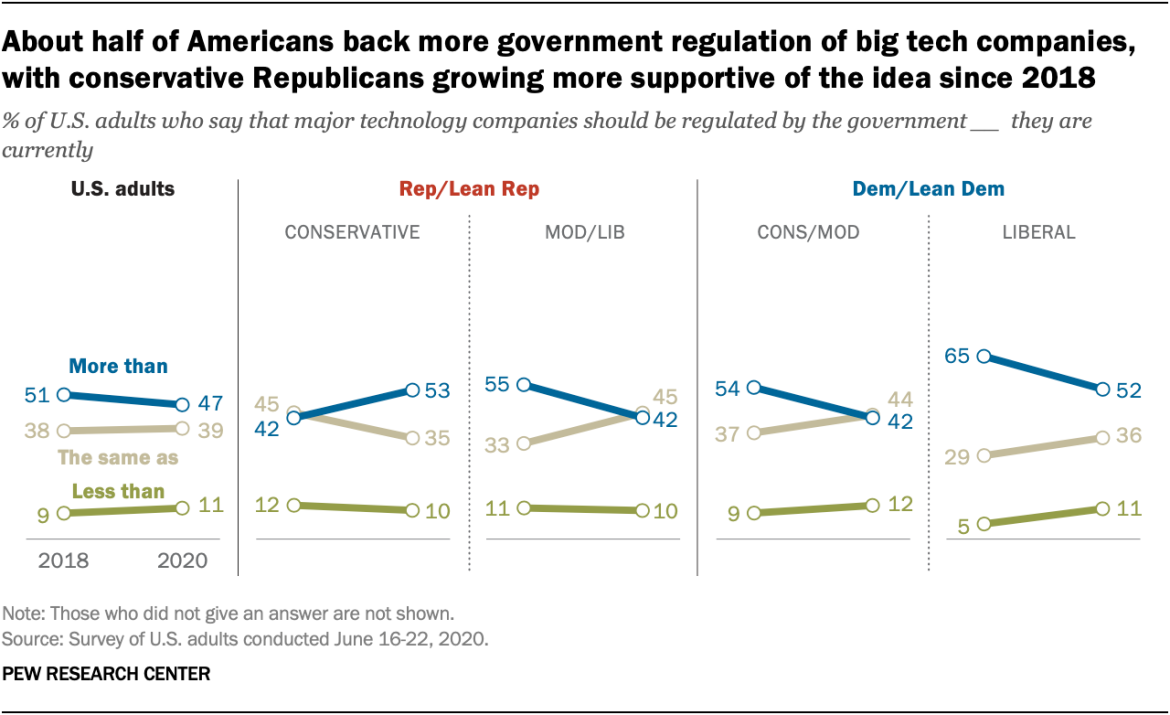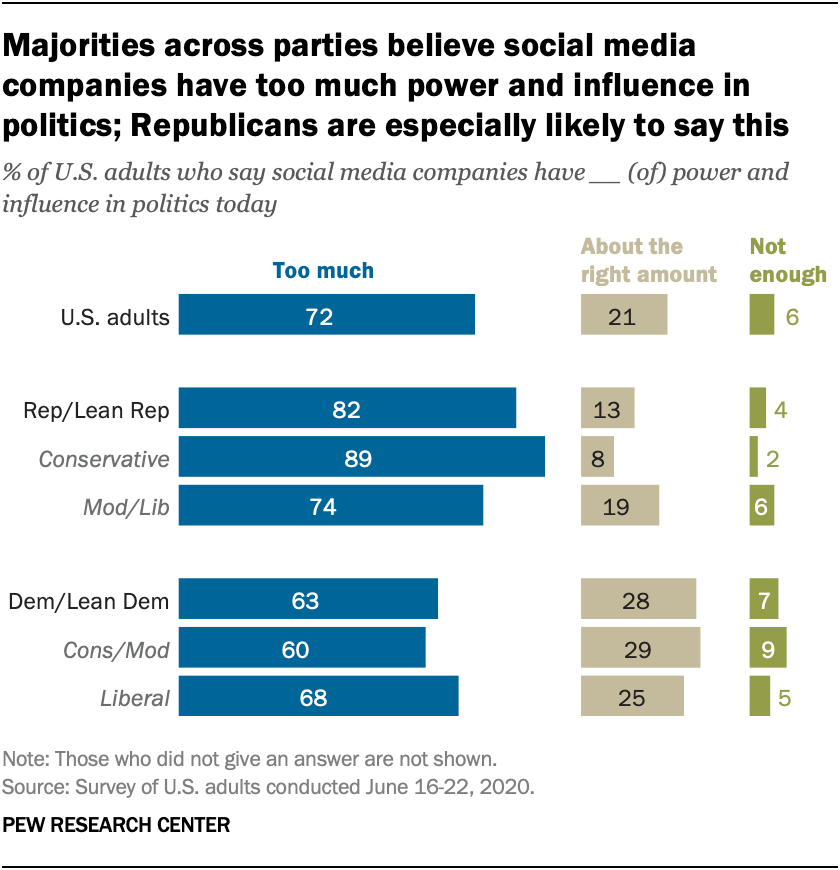Nearly half of Americans now believe major tech companies should face more regulation. That was one key finding in a new survey by the Pew Research Center.

The survey was released as a House Judiciary Committee is looking into tech companies. Specifically, they are examining anti-trust concerns. Google, Facebook, Amazon, and Apple were expected to appear before Congress to answer questions starting July 27th, although the hearing has been postponed due to the passing of Rep. John Lewis, who will lie in state at the Capitol this week.
Here’s are the key items that each of the tech companies will face questions about:
One point of concern is that social media companies became monopolies by buying up smaller competitors before they grew big enough to trigger an antitrust review, such as the acquisition by Facebook of WhatsApp, Instagram, and most recently, Giphy.
The FTC is already investigating Facebook over acquisitions.
How Google promotes its owned-products versus those of competitors in its search results.
Also, legislators are probing Google’s dominance in digital advertising. This comes amid reports that the U.S. government plans to file antitrust charges against the search engine’s parent company. The company is also under fire from multiple state Attorneys General.
Amazon
How the company uses data from third-party sellers to decide which products to sell under its own label.
A Wall Street Journal report recently highlighted more than a dozen entrepreneurs that said the online retailer invested in their companies, had access to proprietary information and then launched competitors effectively making it impossible for them to compete with Amazon.
Apple
The focus will be on the App Store which takes 30% commission from apps selling digitally – including apps it competes with. Since its own apps don’t have the “30% Apple Tax,” it’s argued that Apple has an unfair competitive advantage.
Too Much Influence?
The Pew study also reported that the majority of those surveyed believe social media, in particular, has too much influence over politics. Both Republicans (82%) and Democrats (63%) said the companies have too much power and influence in the political arena.

How Do Other Countries Regulate Social Media?
Social media is regulated differently in other countries. In the EU, platforms face fines if they don’t delete what’s considered extremist content within an hour. In Germany, social media companies are required to remove anything illegal within 24 hours.
Turkey is considering a different approach. The government would restrict traffic by up to 90% for social networks that receive more than a million views daily if the companies do not set up a legal presence in the country. Information about Turkish residents would have to be maintained in-country and respond to requests for removal of content within 48 hours.
Harassing and violent posts must be removed within 48 hours in Australia or tech execs can face jail time. Singapore requires the removal of false statements.
Here’s a roundup of how other countries are approaching social.
